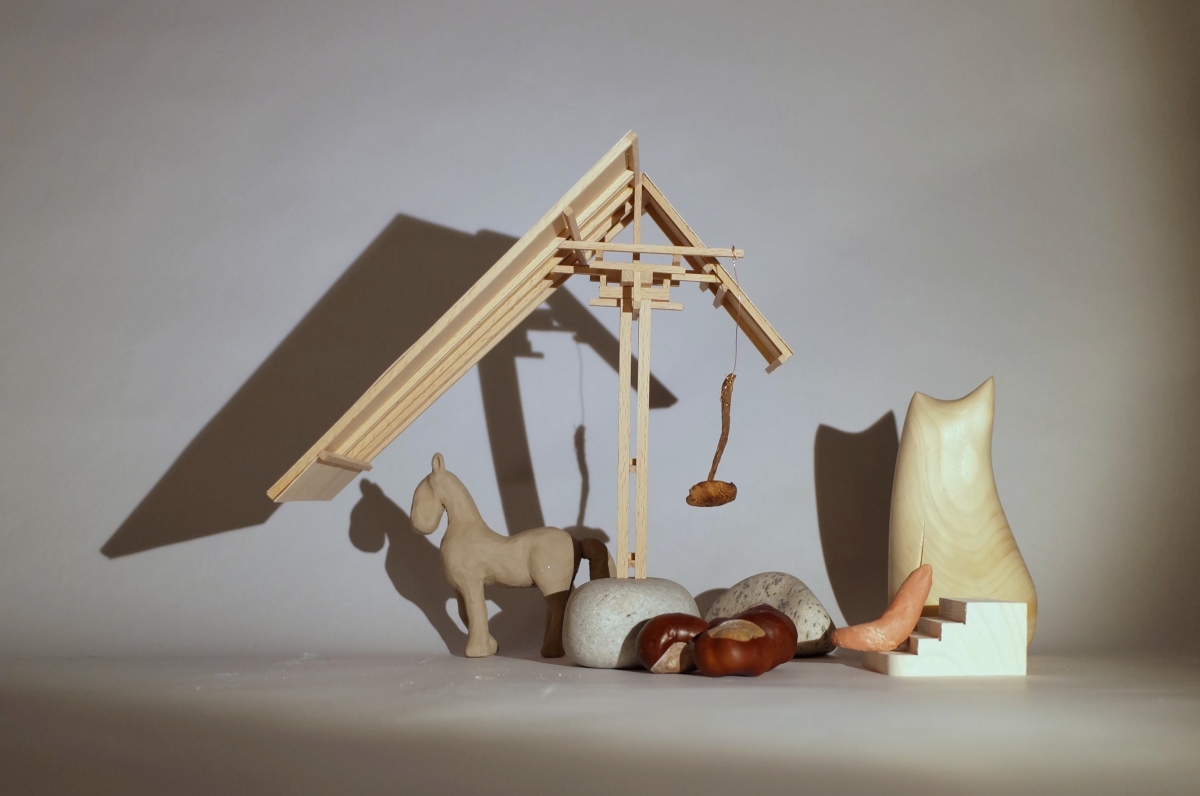Body & Space Morphologies

Credits: 24p
Teacher: Rolf Gerstlauer
Other teachers: Wengkai Xu, Jan Gunar Skjeldsøy, Anders Eik Pilskog og Julie Valentine Dind.
Body and Space Morphologies is a research-based teaching program in the Building Art department (Architecture & Culture studies) dedicated to Phenomenology in Architecture. The program offers Trans-Disciplinary master studios and elective courses in explorative - architectural and pre-architectural - making, sensing, and thinking.
Building Art, as seen from a Body & Space Morphologies viewpoint, is a profound and sincere Material Practice that rigorously aims at producing genuine content in the philosophical discussion on the Human Condition; The-More-Than-Human and/or The Human+.
Hence, we train our students in conducting their own individual Artistic Research; the hands-on practice that allows for and aims at the creation of first-hand experience in the meeting and working with chosen conditions, phenomena and/or situations.
Rather than arguing for relevance of thought, theory or idea, our students are confronting and working an inspiration or material of their own. Their semester starts with little knowledge but a strong initiative and the urge to develop a material practice that explores and wants to gain expertise within.
The studios Pedagogy of Work maintains a strict open and entirely student-driven process where the individual work is weekly discussed to make for a collective sensing, thinking, and learning.
All Body and Space Morphologies studios collaborate with capacities in other fields of the Humanities (and the Science) providing us with the Trans-Disciplinary syllabus (lectures, readings and field-studies / excursions) necessary to individually and collectively ponder and reflect on Phenomenology in Architecture; the Human Condition and the Creative Act it is to make and conceive of Relational Objects or Architectural Phenomenology.